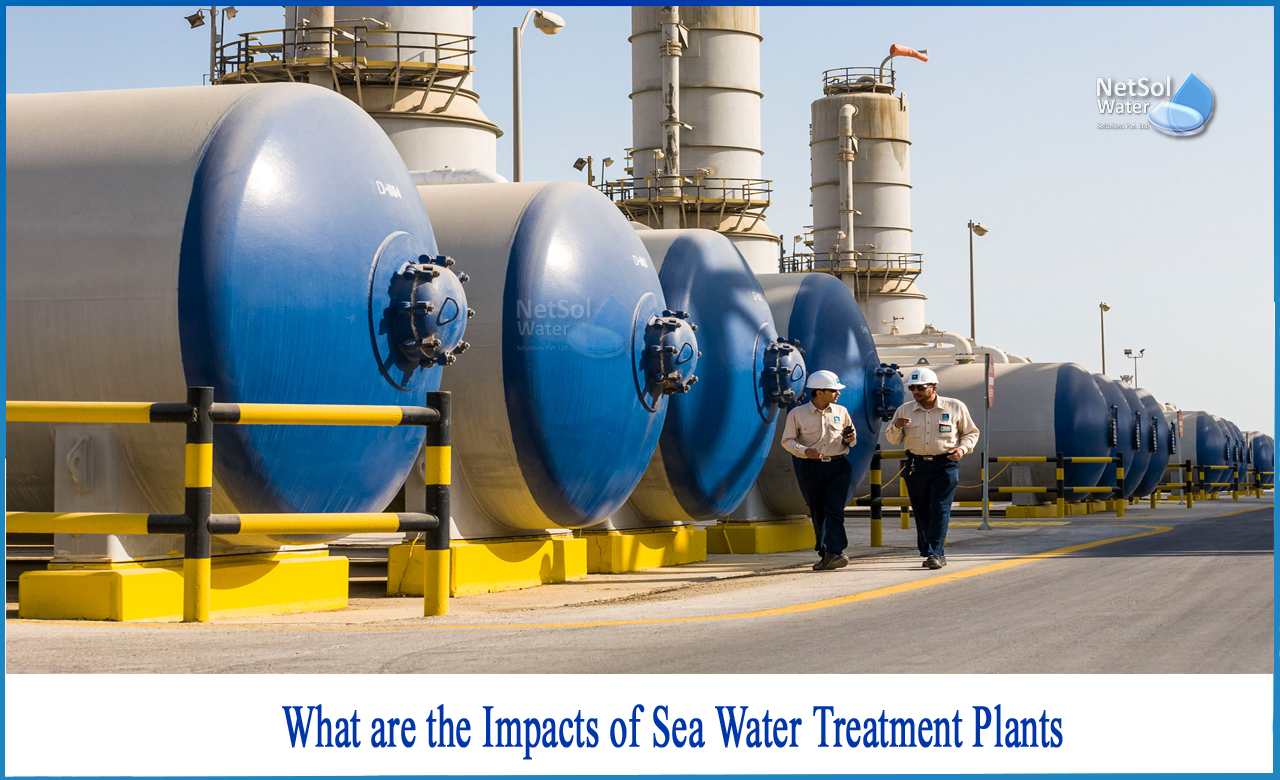Overview
In certain areas, finding clean, drinkable water is difficult. Even the largest of the world's freshwater supplies can become stressed as the world's population expands and industrial production rises. As a result, desalination is intended to increase our global water supply.
As with every technology or process, there are environmental concerns that must be taken into account. Many contemporary designs are presented with the goal of addressing an environmental concern that has plagued previous designs.
However, these innovative designs frequently have detrimental consequences for ecosystems. With careful design, supplementary technology, and/or processes, some consequences can be avoided.One of the world's answers to water scarcity is a seawater treatment facility. It does, however, have its own set of environmental concerns. There are, of course, ways to mitigate or eliminate those impacts.
What are the impacts of Sea Water Treatment Plants?
1: The Environmental Impact on Marine Life
Impingement and entrainment are one issue in the desalination sector. When water from the ocean is pulled in, marine life such as fish and crabs might be sucked in and die against the intake screen, a process known as impingement. Entrainment occurs when smaller animals, such as fish eggs and plankton, are sucked in and killed during the treatment process.
What could be the possible solution?
Switching from a surface to a subsurface intake method is one technique to mitigate this risk. This entails taking water from the ocean floor rather than the surface, where sand can serve as a natural filter to safeguard marine life. During the treatment process, this natural filter also decreases the need for chemicals and energy usage.
The use of a subsurface intake system isn't the sole way to conserve marine life. Experts have also discovered techniques to modify screen holes such that a finer mesh is used, leaving less room for organisms to enter the intake. Lowering the through-screen velocity is another option. When crabs and fish are caught, impingement occurs because the through-screen velocity is so great that they are unable to move away.
The Environmental Protection Agency (EPA) has found that a velocity of less than or equal to 0.5 feet per second is sufficient to effectively mitigate marine consequences.
2: The Energy Consumption
Desalination is no exception when it comes to energy consumption. Desalination plants use more than 200 million kilowatt-hours of electricity every day around the world. Desalination plants are particularly vulnerable to price hikes because energy expenses account for around 55% of their operational costs. A standard drinking water treatment facility, on the other hand, uses less than 1 kilowatt-hour per cubic metre.
What could be the possible solution?
Desalination plants that use the reverse osmosis method, which uses the least amount of energy and produces the least quantity of brine, use significantly less energy. Forward osmosis, which uses a solution of salt and gases to create a pressure differential, is one way being tested.
According to Netsol Experts, this can extend the life of reverse osmosis membranes while also reducing the requirement for disinfectants during treatment.Solar power is also being examined as a potential solution to high energy usage. The thermal desalination method is being improved by Netsol experts using a sustainable kind of energy.
Conclusion
Desalination could have several disadvantages.
Netsol Experts are considering the generation of brine and the consumption of garbage as they try to figure out how to solve one of the world's most serious problems: access to safe drinking water. Fortunately, new solutions are being developed and incorporated to lessen the impact of the desalination process, such as the use of updated filter and intake systems and solar energy.
Netsol Water is Greater Noida-based leading water & wastewater treatment plant manufacturer. We are industry's most demanding company based on client review and work quality. We are known as best commercial RO plant manufacturers, industrial RO plant manufacturer, sewage treatment plant manufacturer, Water Softener Plant Manufacturers and effluent treatment plant manufacturers. Apart from this 24x7 customer support is our USP. Call on +91-9650608473, or write us at enquiry@netsolwater.com for any support, inquiry or product-purchase related query.



